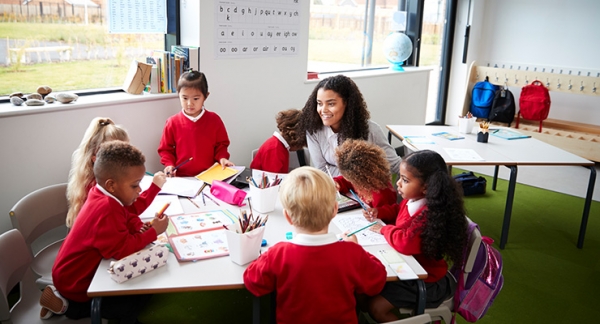Why teachers are great role models

Most people, in and outside of education, agree that teachers, for the most part, should be and are great models for all learners. This is especially true for teachers imparting their knowledge to children and young people, who are, by virtue of their age, perhaps at their most impressionable and susceptible.
Given that apart from the parents, immediate family and close friends, teachers are the most visible presence in their lives, it’s fair to say that good or bad, you are in your role as an educator going to have some sort of impact on how they see and experience the world in the moment and beyond.
So, what do we exactly mean by a role model? What does this designation actually constitute? At a base level - a dictionary definition that is - it is someone who is “looked to by others as an example to be imitated”. That’s fairly accurate, but the not the complete picture.
A role model also implies being an individual whose behaviour, approach to life and the work they do - and the successes they enjoy - is appreciated by others. Moreover, its inspiring, it’s a standard that people respect and it’s enabling - role models challenge us to be better - to reach for the stars.
Needless to say, that weight of expectation is huge and while it isn’t certainly implied - a teachers are imbued with the responsibility to effectively teach their subject and ensure pupils are knowledgeable and skilled - it is still implicit.
For example, a professional who goes through the motions, hits all the objectives of their subject curriculum and achieves high grades is clearly doing a good job. They’re getting results through a prescriptive and effective approach. Yet, all the while, if lessons are dull, activities bland and enthusiasm absent, the learning experience is going to be less than memorable or impactful.
Conversely, an equally resourceful teacher - who imparts the right knowledge and insight, boosts standards and delivers exam success - can deliver a much more meaningful effect on pupils through more engaging and creative lessons. This goes beyond intended outcomes and that which can be easily quantified. It’s something deeper.
The thing to note is that teachers should actively acknowledge that they are role models and ensure that when it comes to teaching, engaging with students and interacting with other members of staff, that they are at the best, that they live by the values they subscribe to and lead by example. You have to, as a professional, be at the top of your game at all times.
It’s not easy being a role model, but it is so rewarding. Making a difference, whether that’s one pupil commenting on your lesson being the best they’ve had in ages, having a student write you a letter later in life thanking you for being a great teacher or seeing one of your former pupils succeed at their dreams, is all that counts.






